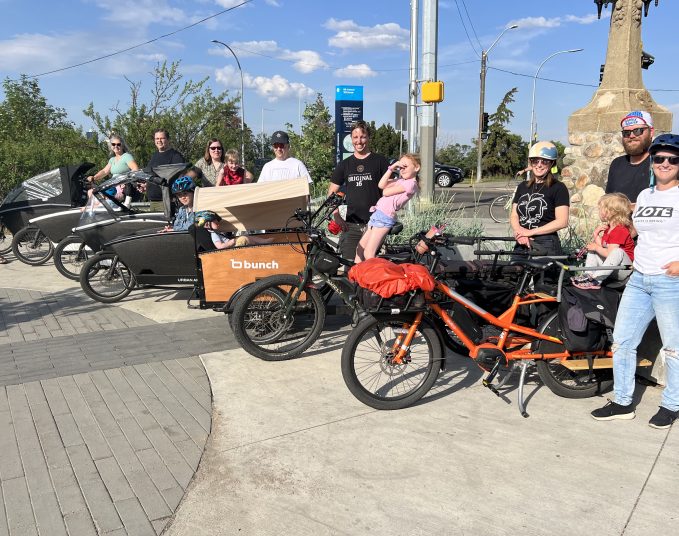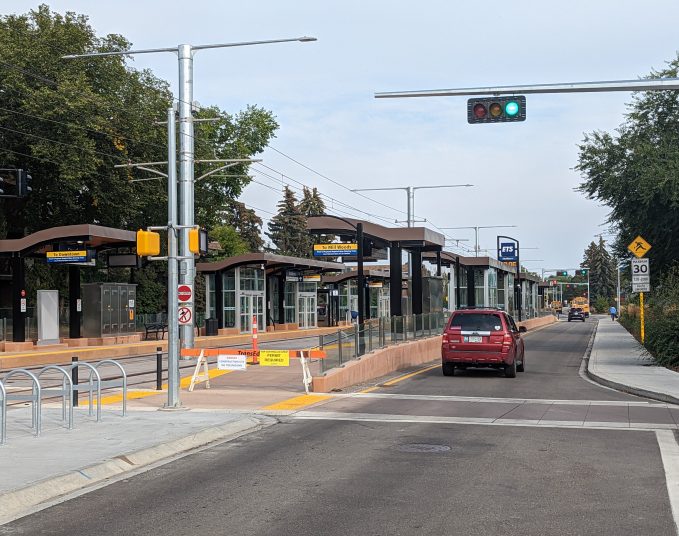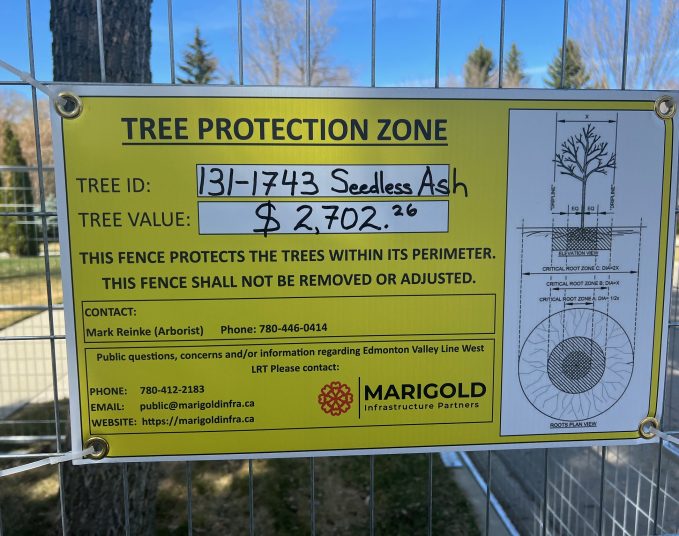Paris Marx will be speaking in Edmonton this Saturday about technology and the effects it is having on our cities. The event, hosted by Coun. Michael Janz, starts at 6 p.m. at Kaffa Cafe, 10920 88 Ave. NW. Marx is the host of the podcast, Tech Won’t Save Us, and author of Road to Nowhere, which looks at how highways and motorized vehicles have changed cities, created suburban commutes, and how promised advances in transportation technology won’t really benefit our lives.
Ahead of their appearance in Edmonton, Urban Affairs spoke to Marx. The interview has been edited.
What will you be talking about this Saturday?
Over the past 10 to 15 years, the tech industry has proposed a lot of big solutions for us, around transportation and many other issues we’re facing in society… The tech industry is really good at getting us to buy into its narratives and its vision of the world. But, I think it’s fair to say that what we’ve seen is that they’ve been unable to deliver on a lot of those really big promises, in transportation and many other different arenas, as well.
The self-driving cars that were supposed to be everywhere by now are just being tested in a few cities. Even then, there’s a lot of complaints about how they actually work and what they mean for traffic patterns, getting in the way of emergency vehicles and things like that.
The hyperloop, of course, has been worked on for a decade and isn’t really any closer to arriving today than it was back then.
Whether it’s the various problems in our transport system, with traffic, emissions and road deaths, or wider issues like climate change, it’s worth recognizing that technology will help us to address those issues, but ultimately those are political problems and not technological ones. So, if we want to solve them we need to look at the things that we know will work to address these problems, rather than hoping that the tech industry is going to invent some magical technology that will fix it all.
Earlier this year, several city councillors expressed their concerns over the ever-increasing sizes of SUVs and pickups, and what that can mean for cities. How concerned should we be?
It’s an ongoing conversation across North America. A lot of what happens on Canada’s streets is really shaped by U.S. automotive legislation, in terms of how large vehicles get and why they have gotten to that size. We see these discussions more and more as we see these larger trucks and SUVs on our streets. If they do hit a pedestrian, it means that the person is hit higher up on their bodies. If you were hit by a sedan, it would hit your legs. But, if you’re hit by one of these larger vehicles, it’s going to hit you right in the torso — and that means there is a much higher risk of serious injury and death.
And the other worrying thing is that we are in the beginning stages of this transition to electric vehicles. And, what we know is that electric vehicles are heavier than the fossil-fuel vehicles many of us drive right now, because of the large batteries that are in them. If we continue on this track of having really large vehicles, and them being powered by really large batteries, that means more damage to roads, but it also means a greater threat for pedestrians if they’re hit by one of these vehicles.
Is there a technological advance that can turn the tide?
I think the biggest issue we face is less around what these new technologies are going to mean, and more around what are the long-standing issues that we face in our cities and in our transportation systems. We can’t just wait for new technologies to arrive to address the problem, when they might bring problems of their own.
We know there are ways we can address these issues already. But, do we have the political will or are we open to having those conversations around these issues? They stem from our over-reliance on cars, and the expectation that nearly everyone has to drive a car, instead of giving people reasonable alternatives to get around.
What are some of those old-school initiatives?
I think of it more in the sense of opportunity. When we look at our cities across Canada, and Edmonton is part of this as well, we’ve had many decades where we’ve put a lot of investment into automotive infrastructure and building out our roads and our highways and incentivizing everyone to buy their own vehicles. While we were doing that, we weren’t really making investments in other forms of transportation. We weren’t making investments to make sure there was a good, frequent, reliable form of public transportation for people. Or, a cycling network where you felt safe and that you didn’t feel like you were worried about being hit by a car.
When we look at addressing these problems, we need to recognize that in our North American cities, cars aren’t going away. They are still going to be features of our cities for a long time to come. But I think there is a lot of opportunity in making investments in public transportation, to improve those networks. Make investments in cycling infrastructure so it’s easy for people to feel safer when they get around on bikes. We can have more bike storage facilities, so your bike is not going to get stolen if you need to park it for a while.
But we also have to think about how we build our communities. Does it make sense to add more suburbs onto the ones we already have? Or do we try to densify and build up a bit in not just the core, but the suburbs around the core?
How do you push back against people who don’t want to see money spent on bike lanes, or neighbourhoods that rise up against densification in their communities? Is it fear of change? Why do we cast some of the people who want change as villains?
I think it’s essential to understand the reasons why people are pushing back against these developments. In some cases, they don’t want to see change in their communities. I think that’s a discussion we need to have.
But there’s another piece to this where people are very nervous about what these changes will mean to their ability to stay in their communities. What we’ve seen in other parts of North America is that when these improvements are made to infrastructure, things like better cycling networks and better public transit, it means that the cost of housing goes up. The people who were living in those neighbourhoods before are getting pushed out because of expenses. That is something we need to be aware of and thinking about.
I also think some of those voices who oppose these things can get a lot more attention than the people who support improvements in public transportation and densifying communities and building out cycling networks. In some cities, we underestimate the support we have for these initiatives. Part of the way to push back is to better organize the people who support investments in public transit, to invest in bike infrastructure.
How important is it for a transit network, like what’s currently being built in Edmonton, to be reliable? Common complaints we hear is that the LRT is too infrequent, that the system itself is not reliable.
It’s key. If it’s not reliable, people just aren’t going to use it, because they don’t know if they’re going to get to work on time, if they’re going to get to an appointment on time. If you’re waiting for the LRT or you’re waiting for a bus, you need to know you can get where you need to go. That’s a serious issue. I’m from St. John’s, Newfoundland, and they have similar issues with their bus network. These are issues that exist across Canada. And they exist, at least in part, because there has been that lack of investment in public transportation.
That’s because, in part, we have cities that have limited taxation powers that are being expected to deliver all these services. One of the things you can do to promote better public transportation and better service frequency and reliability is to have provincial governments start to provide some operating funding, not just capital funding. That way, it’s not such a stretch on the municipal government to provide these services. I know that might be a more difficult conversation in Alberta than some other provinces, because of the nature of the provincial government. But, I think that would be a really important step forward.
Savvy AF. Blunt AF. Edmonton AF.




